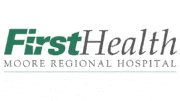[call out]
Kelly Jones-Tice of Pinehurst is both half and twice the woman she used to be.
[end call out]
After successful completion of the bariatric surgical program at the FirstHealth Bariatric Center and careful, continued maintenance of her lifestyle change, Kelly is now 141 pounds, a shadow of her former self at 329 pounds. Concurrently, the 49-year-old is achieving physical and productivity feats and influencing others’ health in ways she would have never dreamed of before.

“Ever since I was a child, I always fought weight and it was always on my mind,” said Kelly. “There was never a time that it wasn’t a problem.” She started Weight Watchers in high school and tried numerous weight-loss programs, sometimes losing up to 100 pounds. However, she always gained it back – and more. “Plus, I was a stress eater, so that didn’t help,” she added.
As regional manager of 17 branches of PNC Bank in the Sandhills, Kelly is a smart, savvy and skilled businesswoman. She has always been able to navigate and excel in the toughest of situations, so she was frustrated that she couldn’t solve this situation herself. “Eat less, exercise more was the formula I had always heard, and I couldn’t understand why that wouldn’t work for me,” she said.

Kelly isn’t alone. More than 93 million adult Americans are affected by obesity, a metabolic disease defined by the Centers for Disease Control as having a body mass index (BMI) of greater than 30. “Obesity is a complex disease that the medical field is only beginning to understand,” said FirstHealth Bariatric Center Program Manager Melissa Herman, R.D., LDN, CDE. “It is not a personal failure and is very difficult to manage without medical support. Since obesity is caused by so many factors, it can be difficult to control through diet alone.”
In the summer of 2017, when she had lived in Pinehurst for six months, Kelly woke up one Saturday morning and couldn’t breathe. A trip to the emergency room revealed a pulmonary embolism, a blood clot that started in the leg and traveled to her lungs – and could have been fatal. The doctor said obesity was a likely factor in the embolism, so Kelly knew then and there she had to get real, lasting help. “That was my catalyst,” she said.

She was aware of bariatric surgery as she had pursued it while living in Atlanta, but at the time did not have a high enough BMI to be a candidate. However, in her research online, she discovered a weight loss surgery information session hosted by FirstHealth Bariatric Center surgeons Drs. Raymond Washington and David Grantham. In it, the doctors explained the program’s multidisciplinary approach, which included not only surgeons, but a nutritionist, exercise physiologist, psychologist and dedicated nursing staff to assist patients through their individual journeys for long-term success.
“This is it,” Kelly said to her then-partner (now husband) Rich Tice after watching the session. “This is the change I need.”
Kelly attended an in-person information session, which included recording her weight — 329 pounds. At the session, she listened to Drs. Washington and Grantham and collected a wealth of information, essential for the trained numbers analyst. She also met Christi Embler, BSN, R.N., and a Certified Bariatric Nurse from the American Society for Metabolic and Bariatric Surgery. “I was admittedly embarrassed to attend this session, but everyone, particularly Christi, had an incredible way of making you feel like this is a personal journey that truly matters – that you matter and you can get help.”
After consulting with Dr. Washington and reviewing several surgical options, Kelly chose sleeve gastrectomy. This option permanently removes 85 percent of the stomach, leaving it in the size and shape of a small banana. This restricts the amount of food patients can consume and prompts hormonal changes that assist with weight loss.

Even before her surgery, Kelly knew this weight loss effort would be different than her previous attempts because of one key element: support. “Between that first information session and surgery day, I received an incredible amount of support,” she said. “I knew I wasn’t alone and had a whole team of health care providers and fellow patients who were right with me.” She started to attend semi-monthly, in-person group support sessions exclusively for FirstHealth Bariatric Center patients and joined an online support group to glean as much information, tips and best practices as possible. “I thrive on information and need to know what to expect,” she said. “The folks who had ‘been there and done that’ were invaluable in my fact-finding mission.”
But then came an unexpected blow when her insurance company denied coverage. “I felt like I was sucker-punched,” she said. She and Rich discussed their options and decided to pay for it themselves. “This was an investment I needed to make,” said the banker.
Saturday, June 23, 2018, was surgery day and the culmination of months of self-reflection and preparation. It was also the first day of her lifelong journey to sustained health.
She was out of work for four weeks, mainly to get her body used to a new way of living. Kelly is quick to point out that her post-surgery journey was not easy, as she experienced a slight complication calling for a brief hospitalization. She also had to manage a wide range of emotions. “When you’re losing weight so quickly, emotions can run high in both directions and you can be quite vulnerable,” she said. “Fortunately, my team included a psychologist who helped me sort through them. And Christi was always a call or text away. I never felt like she didn’t have time for me.”
She also resumed attendance at the group support meetings. “Those Thursday nights were my recharging stations,” Kelly said. At these meetings, she and her peers shared their challenges and triumphs. “One man didn’t have support from his wife in his weight loss journey, but we were there for him and he persevered.” This and the online group were (and still are, almost a year and a half after surgery) instrumental in her recovery.
“We want our group meetings to be safe places where patients can discuss what’s going on with their journeys and themselves,” said Embler. “We also cover a wide range of informative topics, including exercise with fun classes, cooking sessions with a patient who’s also a gourmet chef, goal setting with vision boards and other ways to get patients engaged in their continued personal growth. Family members are always welcome, too, as they are instrumental in their loved ones’ success.”
Kelly said patients in the group sessions often discuss their next steps and for many, it is the removal of excess skin left from weight loss. It was there she met and scheduled a consultation with Russell Stokes, M.D., F.A.C.S., medical director of Pinehurst Surgical Clinic’s department of plastic surgery. At Dr. Stokes’ office before the consultation, a nurse took photos of Kelly. “The privacy was wonderful,” she said. “She was very respectful and my face was never included in the photos, only the areas of my body that I said I wanted to change.”
Kelly said Dr. Stokes is a warm, caring person who “looked at me eye to eye and said ‘let’s talk about what you’re thinking of’ in terms of surgery. He discussed my options with me and was very upfront in sharing the pros and cons of each. That’s what I appreciated the most.”
“Kelly is a very motivated patient and one of her best qualities is she has very realistic expectations,” said Dr. Stokes. “There are some things that can be corrected with surgery and some things that cannot, and it is very important to distinguish between those during the pre-operative consultation. Kelly did a good job of prioritizing the things that bothered her the most. While most weight loss patients choose to address the abdomen first, her thighs were her biggest concern, so we addressed those first.”
Kelly opted for a breast lift with augmentation and upper medial thigh lift, which took seven inches off her thighs. Her post-surgery experience was exceptional here as well, as she felt welcomed to call her nurse Brandy Crawford, R.N., with questions and concerns. She will undergo a second surgery to address her abdomen in early 2020.
Now down 188 pounds from her initial weigh-in, Kelly has undergone a complete transformation, both visibly and invisibly. In May 2019, she flew to Chattanooga for a wedding and her mother was scheduled to pick her up at the airport. “Even though she had seen me a few months before, my own mother walked right by me,” said Kelly. “She didn’t even recognize me!”
What’s more, Kelly reports being far more productive at work and able to do one of her favorite things she couldn’t do before: be active. The year before her surgery, she purchased an elliptical trainer, but couldn’t exercise even a minute on it. Now she can exercise on it enough to get a great workout. Plus, “I just took up jogging!” she exclaimed. “Since we live in a small community, I’ll see Dr. Washington out and about and I recently told him about my new hobby. He told me I was doing phenomenal and that I’ll be running in a 5k before I know it.”
“Kelly is extremely motivated,” said Dr. Washington. “She is a good listener and has a tremendous amount of self-discipline and desire to be successful, both in the workplace and in the weight loss process. She went by the book to the best of her ability and used the team approach to deal with stress. She didn’t let things interfere with her goal.”
Embler agreed, “Kelly has been successful because she realized early on it wasn’t going to be easy, but she was firmly committed and trusted the process. She views the program as a tool to jumpstart her progress and has used each and every resource to make the most of it. We find that patients who have a structure in place, tap into the resources offered and reach out when they need help are more engaged and enjoy more success. Beyond the surgery, we want them to know they have gained a full family of support.”
One of Kelly’s most gratifying aspects of her journey is her newfound ability to help other weight loss patients, both online and in person. “Just like the support that was extended to me, I want others to know they are never, ever alone. On the closed Facebook group, patients in all stages of the process post their questions and I can be right there, providing words of wisdom. Then I can meet them in person at the group meetings and it’s just wonderful.”
Since her surgery in 2018, her company’s insurance now covers bariatric surgery. “My co-workers were very much a part of my journey and saw how it impacted my life, so I was thrilled when a colleague told me she was considering bariatric surgery and asked me to attend the information session with her.”
Another benefit of a successful weight loss journey? Royalty status, or at least feeling like it. “Rich and I had been together for 11 years and kept saying we’ll get married, but we never got around to it. The real reason I didn’t push it is that I didn’t want to have wedding photos taken.” After completing the program, Kelly and Rich were married in the Florida Keys. “I felt like a princess in my wedding gown. That’s what Dr. Washington, Christi, Dr. Stokes and my entire team gave me.”
In 1999, FirstHealth Moore Regional Hospital and Pinehurst Surgical Clinic joined forces to form the FirstHealth Bariatric Center, a comprehensive weight loss program in the Sandhills. Bariatric surgery aids those who are suffering from morbid obesity by offering solutions such as reducing the stomach size or removing a portion of the stomach. Different types of bariatric surgeries in the program include Roux-en-Y Gastric Bypass and Sleeve Gastrectomy for significant weight loss and maintenance for those suffering from morbid obesity. The FirstHealth Bariatric Center is staffed by an interdisciplinary team of bariatric specialists who provide quality education and support, before and after surgery.
The FirstHealth Bariatric Center is accredited as a comprehensive center under the Metabolic and Bariatric Surgery Accreditation and Quality Improvement Program (MBSAQIP), a joint program of the American College of Surgeons (ACS) and the American Society for Metabolic and Bariatric Surgery (ASMBS). For more information about the program, visit www.NCWeightLossSurgery.org.











